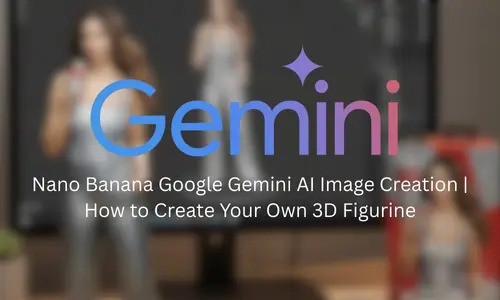Jules Launched by Google | Asynchronous Coding Agent

GPT-OSS-120B & 20B New OpenAI Models with Open Weights
August 8, 2025
Announces Imagen 4: A model for your creative needs in Gemini
August 16, 2025Google’s latest innovation in artificial intelligence is set to transform how developers approach their workflows. The Jules asynchronous coding agent, powered by cutting-edge technology, promises to handle tedious tasks while letting creators focus on what they love most. This tool emerges at a time when efficiency and automation are key in software development, offering a seamless blend of autonomy and user control.
What is Jules?
Jules represents Google’s foray into agentic AI specifically tailored for coding environments. Unlike traditional chat-based assistants that require constant interaction, this agent operates independently, tackling complex programming challenges without needing real-time oversight. Designed for developers of all levels, it bridges the gap between idea and execution by automating routine aspects of code management.
At its core, Jules functions as a virtual collaborator that understands project contexts deeply. It pulls in entire codebases, analyzes them, and executes instructions with precision. This makes it ideal for teams looking to accelerate development cycles without sacrificing quality.
Key Features of Jules
Jules boasts a suite of capabilities that set it apart in the crowded field of AI-driven development tools. These features emphasize practicality, security, and scalability, ensuring it fits into diverse workflows.
Asynchronous Operation for Uninterrupted Productivity
One standout aspect is its asynchronous nature, allowing tasks to run in the background. Developers can assign jobs like debugging or feature implementation and continue with other work. Upon completion, Jules delivers a detailed plan, reasoning, and proposed changes, giving users the final say before any commits.
This hands-off approach minimizes disruptions, making it perfect for busy professionals juggling multiple projects. Whether updating dependencies or generating test suites, the agent handles these efficiently, freeing up mental space for creative problem-solving.
Seamless Integration with GitHub
Integration lies at the heart of Jules’ usability. It connects directly to GitHub repositories, cloning them into a secure Google Cloud virtual machine. This setup ensures that all operations occur in an isolated environment, protecting sensitive data.
Users start by selecting a repo and branch, then crafting a prompt. Jules fetches the necessary files, formulates a strategy, and presents diffs for review. Once approved, it creates pull requests ready for merging. This workflow eliminates the need for context-switching between tools, streamlining collaboration in team settings.
Advanced AI Capabilities Powered by Gemini
Under the hood, Jules leverages Gemini 2.5 Pro, Google’s sophisticated language model, for superior reasoning. This enables handling multifaceted tasks, such as multi-file edits or generating audio summaries of commit histories.
Multimodal support adds another layer, allowing the agent to process images, videos, or other media within code contexts. For instance, it can interpret diagrams to inform code adjustments. Additionally, features like reusing prior setups speed up repetitive tasks, while GitHub issues integration ties directly into project management.
How Jules Works in Practice
Getting started with Jules is straightforward, requiring minimal setup. Users visit the official site, link their GitHub account, and begin prompting. A typical session might involve requesting a version bump for a library alongside structural changes, like migrating to a new directory format.
The agent then clones the repo, analyzes the codebase, and drafts a plan outlining steps. Developers review this, make tweaks if needed, and approve. Execution happens asynchronously, with progress updates available. Finally, a pull request appears, complete with diffs and explanations.
This process emphasizes transparency and control. Users can intervene at any stage, ensuring the output aligns with their vision. Security is paramount, with data isolation and no training on private code, addressing common concerns in AI adoption.
Launch Details and Availability
Google first introduced Jules in a public beta phase back in May 2025, inviting developers worldwide to test its potential. The response was overwhelming, with thousands participating and generating over 140,000 code improvements shared publicly.
By early August 2025, Jules exited beta and became generally available. It’s accessible through Google AI subscriptions, with tiers catering to different needs. The introductory level offers basic access for exploration, while Pro and Ultra plans provide multiplied usage limits—five times and twenty times higher, respectively—for more demanding workloads.
Eligible college students can enjoy a free year of the Pro tier, encouraging the next generation of coders. Availability spans regions where Gemini operates, with documentation and support readily available online. While the beta was free, ongoing access ties into subscription models, though exact pricing details are outlined on the official platform.
Benefits for Developers and Teams
Adopting Jules brings tangible advantages to individual coders and larger teams alike. For solo developers, it acts as a tireless assistant, handling grunt work like test writing or bug fixes, which often consume disproportionate time. This boosts productivity, allowing more focus on innovative features.
In team environments, Jules enhances collaboration by automating changelog creation and dependency management. Its ability to provide audio overviews of recent commits helps onboard new members quickly, reducing knowledge gaps.
From a broader perspective, this tool democratizes advanced coding assistance. Small startups without dedicated QA teams can leverage it for quality assurance, while enterprises scale operations through multi-agent setups. Overall, it reduces burnout by offloading repetitive tasks, fostering a healthier work-life balance.
Insights from Beta Users and Feedback
The beta period provided valuable lessons, shaping Jules into its current form. Participants reported significant time savings, with many completing tasks in fractions of the usual duration. Feedback highlighted the agent’s accuracy in understanding nuanced prompts, though early versions faced occasional bugs in complex scenarios.
Google responded swiftly, fixing hundreds of issues and adding requested features like enhanced multimodal support. Users praised the privacy focus, noting how it built trust. Shared code improvements demonstrated real-world impact, from streamlined web apps to robust backend enhancements.
One developer shared how Jules automated testing for a legacy project, uncovering hidden vulnerabilities. Another appreciated the asynchronous mode during tight deadlines, allowing overnight progress. These stories underscore its practical value.
Future Prospects and Evolving Role
Looking ahead, Jules is poised to evolve further. Google hints at deeper integrations with other ecosystems, potentially including IDEs like VS Code or additional version control systems. Advances in AI models could enhance its handling of emerging languages or frameworks.
As agentic AI matures, tools like this might redefine software engineering, shifting roles toward oversight and strategy. Challenges remain, such as ensuring ethical use and mitigating over-reliance, but the foundation is solid.
For now, Jules stands as a beacon of what’s possible, inviting exploration and iteration. Developers curious about the future should dive in, experimenting with its capabilities to stay ahead.
Google’s Jules marks a pivotal step in AI-assisted development, blending autonomy with reliability. By automating the mundane, it empowers creators to innovate freely. Whether you’re a hobbyist or a professional, this agent offers a glimpse into a more efficient coding era. Explore it today and experience the shift firsthand.


